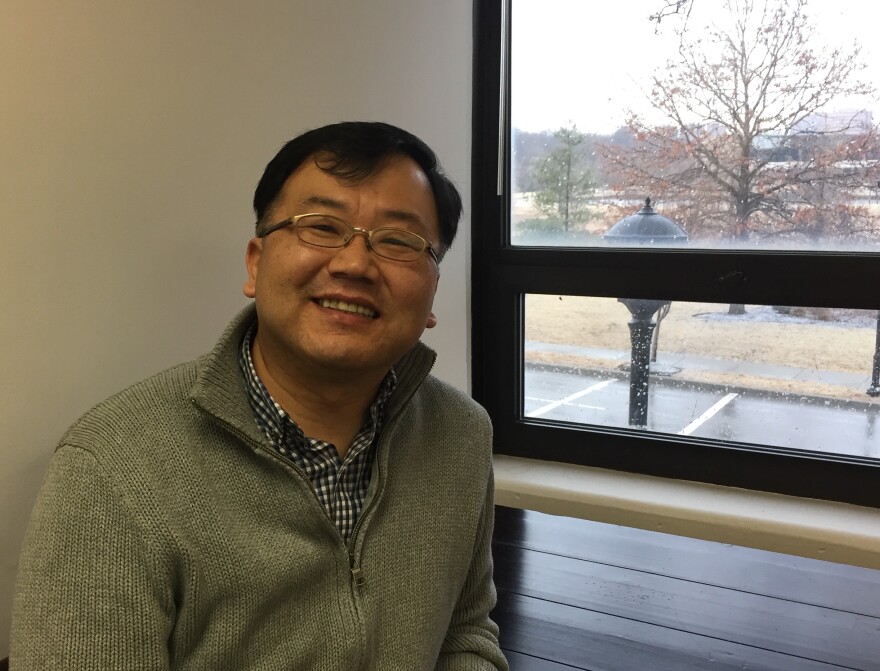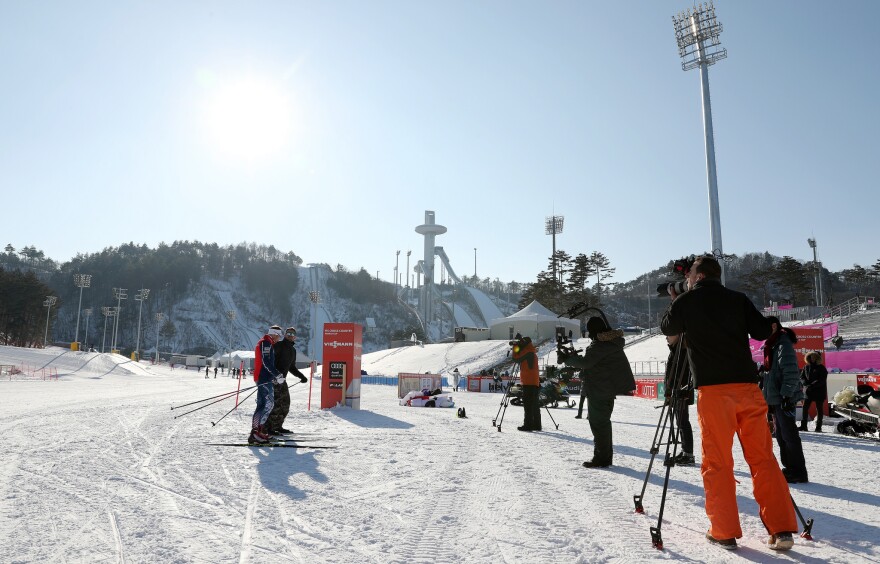This year’s Olympics in PyeongChang are a celebration of winter sports. But for some Kansas Citians with Korean roots, thoughts about the sporting event have been split between cultural pride and political tension.
Dennis Cho, who was born in South Korea and moved to the United States as a young child, said the Olympics are shining a rare spotlight on a place many people in the U.S. don't understand.
"It is a good opportunity to showcase your national pride. For the most part, people don't know where Korea is — North or South Korea for that matter,” Cho told host Gina Kaufmann on KCUR’s Central Standard.

The geopolitical nature of the event was amplified during the opening ceremony, when athletes and members of the South Korea and North Korea delegations marched together under a blue-white unification flag.
But Cho, who served in the United States Navy and was often stationed in the Korean peninsula, said he is skeptical about how far the relationship between the two nations has actually improved in light of the Olympics.

“I would go through [military] training and I realized: North Korea has an army, of I don’t know how many millions of people, but they could go south ... and downtown Seoul could be a bloodbath at any given moment,” he said.
Cho has closely followed South Korean news since the start of the Olympics. He said he believes American media has portrayed the taut circumstances of the event more accurately than South Korean media.
“I think when you live in Korea you tend to forget the imminent danger — the risk of war,” Cho said. “There has not been a treaty between North and South Korea. They’re technically still at war.”
Sejun Song, a computer science professor at the University of Missouri-Kansas City, had a different view.
Song, who moved from South Korea to America when he was 29 to continue his graduate studies, said he is optimistic about the potential for diplomacy after the games.

“I think the Olympics had a changing moment for the North and South Korea relationship,” said Song. “I don’t know if it is political propaganda or something, but I can tell there’s a changing moment before and after. North Korea’s leader’s sister came, too,” he said, referring to fact that Kim Yo-jong's appearance marked the first time a member of the Kim dynasty had visited South Korea since the Korean War.
While Song has lived in America for more than twenty years, he still reads South Korean newspapers online and frequently speaks with friends and relatives across the Pacific.
“To me, I think that this event is not only about sports,” said Song. “For the Korean people, this is more about the relationship with North Korea, I believe. I think to have both nations together … it will be very interesting to have possible peace talks afterwards.”
Listen to the full conversation here.
Coy Dugger is an assistant producer for KCUR’s Central Standard. Reach out to him at coy@kcur.org.


